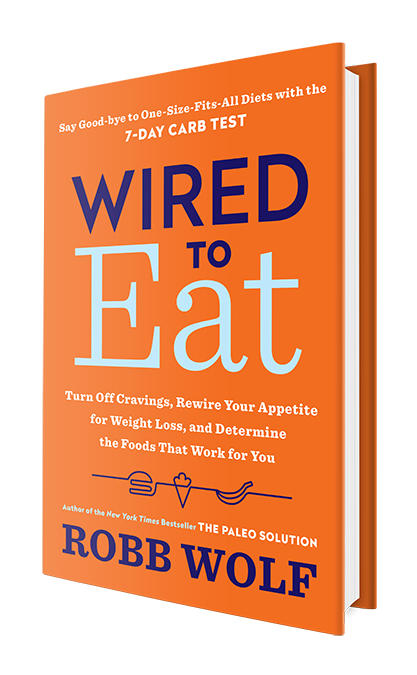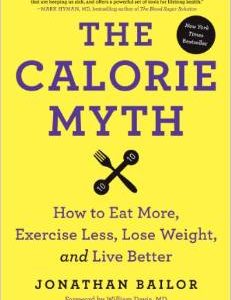When my friends found out I’d adopted a Paleo template, I noticed a pattern. A few of them jumped on board too, which was both cool and admittedly convenient (so many grass-fed burger dates!) But then they started confessing their food failures to me, which I found less fun.

It usually went like this: they needed to tell me that last week they had a beer. Or they ate a piece of cake on their birthday. Or they just could not avoid the work party pizza.
I really like talking about Paleo. I want the people I love to eat more stuff that makes them feel good and less stuff that makes them feel bad. But I also don’t want them to see those choices are reflections of their character. So my concern with these little “confessions” was never that they ate foods that weren’t “perfectly Paleo.” It’s the moralization of “confessing” your “cheats”.
Perhaps that’s why I found Robb Wolf’s excellent second book, Wired to Eat, to be one big a-ha moment after another. His exploration of the neuroregulation of appetite not only gives readers the chance to find a diet tailored to them, but makes the argument that even bad choices have more complex roots than a lack of willpower.
I ordered Wired to Eat because of the appeal of the 7-Day Carb Test. Robb’s self-deprecating humor and wit make the whole science-heavy read surprisingly approachable, but if you don’t want to geek out on what makes our appetites tick, you can reasonably skip to this how-to section. It goes something like this:
Following Robb’s 30-Day Reset (a basic Paleo template), the 7-Day Carb Test shows us how to measure blood sugar responses to a variety of gluten-free carbs using a cheap blood glucometer. Essentially, the process allows us to determine our individual tolerance to certain carbs and build a personalized nutrition plan from that baseline. If you’re as into self-experimentation as I am, you’ll find this process endlessly fascinating.
I have Polycystic Ovarian Syndrome (PCOS) as well as Hashimoto’s Thyroiditis, which can lead to insulin resistance. So even though I’ve been able to reintroduce grains like white rice and corn without triggering autoimmune symptoms, I always wonder how my blood sugar is faring. The action steps in the book’s second section were empowering, and it was certainly helpful to discover that as far as corn and rice and even gluten-free bread are concerned, Thunder Cats are Go.
(Robb delved more deeply into the 7-Day Carb Test in The Paleo View Podcast, Episode 243: Robb Wolf and Wired to Eat).
But the sections that had me muttering “huh” and “really?” and “no way!” to myself as I blew through this book were Robb’s insights on the neuroregulation of appetite.
Robb traces the rise of inflammation, obesity and chronic disease to our genetic roots. Essentially, he argues that we aren’t built to eat in this stimulating environment of caloric abundance and relative nutrient scarcity. When we tack on a lack of bacterial diversity in our food system and little sleep, stress management or social connection, we get a population of overweight and undernourished people.
I n other words, it’s not our fault.
n other words, it’s not our fault.
Robb argues we’re biologically designed to eat more under certain circumstances—when we’re stressed, sleep-deprived or lonely. And in many cases, those circumstances are more the norm than the exception. In other words, we shouldn’t be surprised when “dieting harder” doesn’t work. What we’ve learned to see as a lack of self-control might actually be a misalignment of environment and genetics.
I loved this focus on our neurological impulses because it presents a completely different view of our food choices. What if, instead of moralizing them, we changed the environmental factors affecting those decisions? So sure, the super-cool 7-Day Carb Test gave me some actionable information. It made me feel a lot better about corn tortillas and also my health.
But Wired To Eat also reminded me to sleep more, stress less and pay better attention to my relationships. It helped me see a way out of the on-diet, off-diet cycle for myself and my friends. Robb’s approach to personalized nutrition is the route by which we arrive at a diet that works with our biology AND the modern world, and keeps us from feeling we have anything to confess.
If you want to dive deep into what drives our impulses to eat and emerge with more clarity on personalized nutrition, I can’t recommend Wired to Eat highly enough.
This review was written by Claire Wiseman in our series “Book Reviews with Claire.” Claire is Team Paleo Mom’s Digital Content Manager.









